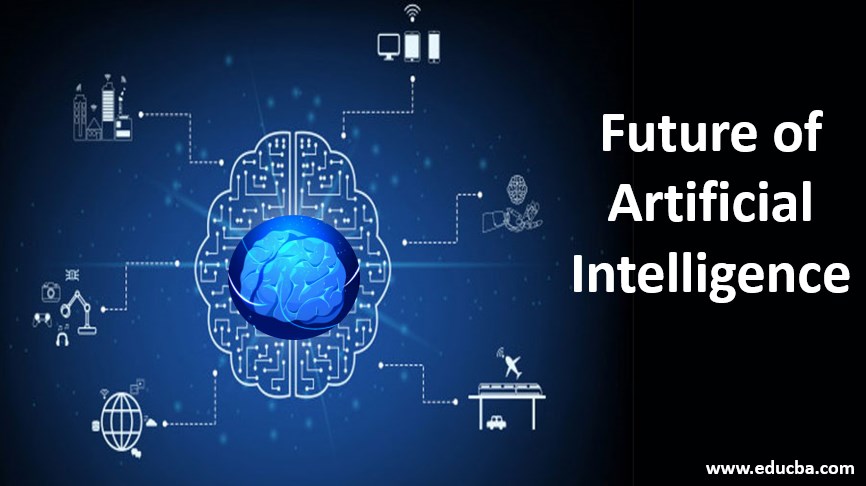How Hard Is Artificial Intelligence? Exploring the Complexity of AI Technology

Understanding Artificial Intelligence

Artificial Intelligence (AI) is a branch of computer science that deals with the creation of intelligent machines that can perform tasks that typically require human intelligence. AI systems can learn from experience and improve their performance over time, making them increasingly valuable in a variety of fields.
There are several types of AI, including:
- Narrow or Weak AI: These are systems designed to perform specific tasks, such as playing chess or recognizing faces in photos.
- General AI: This is a hypothetical type of AI that would be capable of performing any intellectual task that a human can.
- Super AI: This is an AI system that surpasses human intelligence and is capable of solving problems that are currently beyond human understanding.
AI systems are typically designed to perform tasks that are difficult, time-consuming, or dangerous for humans to do. For example, AI can be used to analyze large amounts of data, identify patterns, and make predictions based on that data. AI can also be used to control robots and other machines in manufacturing, transportation, and other industries.
AI systems are typically based on machine learning algorithms, which enable them to learn from experience and improve their performance over time. Machine learning algorithms can be supervised, unsupervised, or semi-supervised, depending on the type of data they are trained on and the desired outcome.
AI systems are becoming increasingly common in our daily lives, from virtual assistants like Siri and Alexa to self-driving cars and smart home devices. As AI continues to evolve, it is likely to play an even greater role in shaping the future of technology and society.
The Complexity of Artificial Intelligence
Artificial Intelligence (AI) is a complex field that involves the development of intelligent machines that can perform tasks that typically require human intelligence, such as visual perception, speech recognition, decision-making, and language translation. The complexity of AI lies in the fact that it involves a wide range of subfields, including machine learning, natural language processing, computer vision, robotics, and more.
One of the main challenges in AI is developing algorithms that can learn and improve from experience. Machine learning, a subfield of AI, involves developing algorithms that can learn from data and improve their performance over time. This requires a significant amount of data and computational power, as well as the ability to identify patterns and make predictions based on that data.
Another challenge in AI is developing systems that can understand and interpret human language. Natural language processing (NLP) is a subfield of AI that focuses on developing algorithms that can understand, interpret, and generate human language. This involves a wide range of tasks, such as language translation, sentiment analysis, and speech recognition.
Computer vision is another subfield of AI that involves developing systems that can interpret and analyze visual data, such as images and videos. This requires the ability to identify objects, recognize faces, and track movements, among other tasks.
Overall, the complexity of AI lies in the fact that it involves a wide range of subfields, each with its own challenges and opportunities. Developing intelligent machines that can perform tasks that typically require human intelligence requires a significant amount of data, computational power, and expertise in a variety of domains. However, with continued research and development, AI has the potential to revolutionize many aspects of our lives, from healthcare and transportation to education and entertainment.
The Role of Data in Artificial Intelligence
Artificial Intelligence (AI) is a field of computer science that aims to create intelligent machines that can perform tasks that typically require human intelligence. One of the key components of AI is data, which is used to train machine learning algorithms and enable them to make predictions and decisions.
In order for AI systems to be effective, they need access to large amounts of high-quality data. This data is used to train machine learning models, which are algorithms that can learn from the data and make predictions about new data. The more data that is available, the more accurate the predictions are likely to be.
There are a few different types of data that are commonly used in AI:
- Structured data: This is data that is organized into a specific format, such as a database or spreadsheet. Structured data is often used in machine learning models to make predictions about new data.
- Unstructured data: This is data that does not have a specific format, such as text documents or images. Unstructured data can be more difficult to work with than structured data, but it can also provide valuable insights.
- Big data: This is a term used to describe extremely large datasets that are difficult to process using traditional data processing methods. Big data is often used in AI to train machine learning models and make predictions about new data.
In addition to the quantity and quality of data, it is also important to consider the ethical implications of using data in AI. For example, bias in training data can lead to biased predictions and decisions by AI systems. It is important to carefully consider the sources and quality of data used in AI, and to take steps to mitigate any potential biases.
Overall, data plays a critical role in the development and implementation of AI systems. By providing access to high-quality data, AI systems can be trained to make accurate predictions and decisions, and to provide valuable insights into complex problems. However, it is important to carefully consider the ethical implications of using data in AI, and to take steps to ensure that AI systems are fair and unbiased.
Machine Learning and Artificial Intelligence
Machine learning is a subfield of artificial intelligence (AI), which is defined as the ability of a machine to imitate intelligent human behavior. According to MIT Sloan, AI systems are used to perform complex tasks in a way that is similar to how humans solve problems. Machine learning, on the other hand, is where machines are taking in data and learning things about the world that would be difficult for humans to do.
Many people use machine learning and artificial intelligence interchangeably, but the terms have meaningful differences. Artificial intelligence is the overall appearance of being smart, while machine learning is the process of machines taking in data and learning things about the world that would be difficult for humans to do. Machine learning can go beyond human intelligence and is primarily used to process large quantities of data very quickly.
AI and machine learning are being applied in organizations large and small today. They are used in various industries, including healthcare, finance, and technology. For example, AI and machine learning are used in healthcare to analyze medical images and identify potential health risks. In finance, they are used to detect fraudulent transactions and predict market trends. In technology, they are used to develop chatbots and virtual assistants.
Overall, while AI and machine learning are related, they are not the same thing. Machine learning is a subset of AI, and both have different applications and uses.
Deep Learning in Artificial Intelligence

Deep learning is a subset of machine learning that has gained immense popularity in recent years. It is a form of artificial intelligence that allows machines to learn from data and make predictions or decisions without explicit instructions. Deep learning algorithms are designed to mimic the way the human brain works by creating artificial neural networks that can learn from large amounts of data.
One of the key advantages of deep learning is its ability to handle large and complex datasets. Deep learning algorithms can identify patterns and relationships in data that are not easily identifiable by humans. This makes them well-suited for tasks such as image and speech recognition, natural language processing, and autonomous driving.
Deep learning algorithms are based on artificial neural networks that are composed of layers of interconnected nodes. Each node performs a simple mathematical operation and passes the result to the next layer. The output of the final layer is the prediction or decision made by the algorithm.
Training a deep learning algorithm involves feeding it large amounts of data and adjusting the weights of the nodes to minimize the error between the predicted output and the actual output. This process is known as backpropagation and is a key component of deep learning.
Despite its many advantages, deep learning is not without its challenges. One of the biggest challenges is the need for large amounts of labeled data to train the algorithms. This can be difficult and time-consuming to obtain, particularly for specialized applications.
Another challenge is the interpretability of deep learning algorithms. Because they are based on complex neural networks, it can be difficult to understand how they arrive at their predictions or decisions. This can be a concern in applications where the decision-making process needs to be transparent and explainable.
Despite these challenges, deep learning has shown tremendous promise in a wide range of applications and is likely to continue to be a key area of research in artificial intelligence.
Challenges in Implementing Artificial Intelligence
Implementing artificial intelligence (AI) systems can be a challenging task due to various reasons. Here are some of the common challenges that organizations face when implementing AI:
Outdated Infrastructure
For AI systems to give expected results, they need to process large amounts of information in fractions of a second. The only way to achieve that is by operating on devices with suitable infrastructure and processing capabilities. Outdated infrastructure can limit the speed and efficiency of AI systems. Organizations need to invest in modern infrastructure to ensure that AI systems can function optimally.
Data Quality and Quantity
AI systems rely heavily on data to learn and make predictions. However, the quality and quantity of data can be a significant challenge. Data quality issues such as missing values, incorrect data, and inconsistent data can significantly impact the accuracy of AI systems. Additionally, organizations need to ensure that they have enough data to train AI models effectively.
Integration with Existing Systems
Integrating AI systems with existing systems can be a complex task. AI systems need to interact with various systems and applications to function effectively. Organizations need to ensure that the AI system integrates seamlessly with existing systems, and data can flow smoothly between them.
Ethical and Legal Concerns
AI systems can raise ethical and legal concerns, such as privacy, transparency, and bias. Organizations need to ensure that AI systems comply with ethical and legal standards. They need to ensure that AI systems do not violate the rights of citizens and workers and, more broadly, human rights.
Talent Shortage
AI systems require specialized skills and expertise to develop, deploy, and maintain. However, there is a shortage of skilled AI professionals, making it challenging for organizations to find the right talent. Organizations need to invest in training their employees or partner with third-party service providers to overcome this challenge.
In conclusion, implementing AI systems can be challenging due to various reasons such as outdated infrastructure, data quality and quantity issues, integration with existing systems, ethical and legal concerns, and talent shortage. Organizations need to overcome these challenges to ensure that AI systems can function effectively and deliver expected results.
Ethical Considerations in Artificial Intelligence
As artificial intelligence (AI) continues to advance, it is important to consider the ethical implications of its development and use. Here are some of the key ethical considerations in AI:
Bias
One of the major ethical concerns in AI is the potential for bias. AI systems are only as unbiased as the data they are trained on, and if that data contains biases, the AI system will also be biased. This can lead to discrimination against certain groups of people, perpetuating existing inequalities in society. It is important to ensure that AI systems are trained on diverse and representative data to minimize the risk of bias.
Accountability
Another important ethical consideration in AI is accountability. As AI systems become more autonomous, it becomes more difficult to assign responsibility for their actions. If an AI system causes harm, who is responsible? This is a complex issue that requires careful consideration and the development of new legal frameworks to ensure accountability.
Transparency
Transparency is also a key ethical consideration in AI. As AI systems become more complex, it becomes more difficult to understand how they are making decisions. This can lead to a lack of trust in AI systems and concerns about their fairness. It is important to ensure that AI systems are transparent and that their decision-making processes can be easily understood and scrutinized.
Privacy
Privacy is another important ethical consideration in AI. AI systems often rely on large amounts of data, including personal data, to function effectively. It is important to ensure that this data is collected and used in a way that respects individuals’ privacy rights.
Safety
Finally, safety is a critical ethical consideration in AI. As AI systems become more advanced and powerful, there is a risk that they could cause harm if they malfunction or are used maliciously. It is important to ensure that AI systems are designed with safety in mind and that appropriate safeguards are in place to minimize the risk of harm.
Overall, it is clear that ethical considerations are an important aspect of AI development and use. By considering these issues carefully and developing appropriate frameworks and safeguards, we can ensure that AI is developed and used in a way that is fair, transparent, and safe for everyone.
The Future of Artificial Intelligence

Artificial Intelligence (AI) has come a long way since its inception. The future of AI is bright, and it has the potential to revolutionize the way we live and work. Here are some of the key areas where AI is expected to make significant contributions in the future:
Automation
One of the most significant impacts of AI will be on automation. AI-powered automation will lead to increased efficiency and productivity in various industries, including manufacturing, healthcare, and transportation. By automating repetitive and mundane tasks, AI will free up human workers to focus on more creative and high-value tasks.
Personalization
AI will also enable more personalized experiences for consumers. By analyzing vast amounts of data, AI algorithms will be able to provide tailored recommendations and services to individual users. This will lead to more satisfied customers and increased loyalty.
Healthcare
AI has the potential to revolutionize healthcare by improving diagnosis and treatment. With the help of AI-powered tools, doctors will be able to make more accurate diagnoses and prescribe personalized treatment plans. AI will also help in drug discovery and development, leading to more effective treatments for various diseases.
Robotics
AI-powered robots will become more advanced and sophisticated in the future. They will be able to perform complex tasks and interact with humans in more natural ways. This will lead to increased adoption of robots in various industries, including manufacturing, healthcare, and hospitality.
Ethics and Regulation
As AI becomes more prevalent, there will be a need for ethical and regulatory frameworks to govern its use. AI has the potential to be misused, leading to unintended consequences. It is crucial to ensure that AI is developed and used in a responsible and ethical manner.
In conclusion, the future of AI is bright, and it has the potential to revolutionize various industries. However, it is important to ensure that AI is developed and used in a responsible and ethical manner.
Frequently Asked Questions
What are the common subjects in Artificial Intelligence Engineering?
Artificial Intelligence Engineering involves the study of various subjects such as mathematics, statistics, computer science, and engineering. Students learn about algorithms, data structures, probability, machine learning, and natural language processing. They also study neural networks, computer vision, robotics, and expert systems.
How long does it take to learn Artificial Intelligence?
Learning Artificial Intelligence takes time and effort. It can take anywhere from several months to several years to become proficient in AI. The duration depends on the individual’s prior knowledge, learning pace, and dedication to the subject.
Is Artificial Intelligence a difficult field to learn?
Artificial Intelligence is a complex and challenging field. It requires a solid understanding of mathematics, statistics, and computer science concepts. However, with the right resources, guidance, and practice, anyone can learn and master AI.
What is the study path for Artificial Intelligence?
The study path for Artificial Intelligence involves a combination of theoretical and practical learning. Students start with foundational courses in mathematics, computer science, and statistics. They then move on to specialized courses such as machine learning, natural language processing, and computer vision. To gain practical experience, students work on projects and participate in internships.
Is AI engineering a stressful job?
Like any other job, AI engineering can be stressful at times. AI engineers work on complex projects with tight deadlines. However, with proper time management and stress management techniques, AI engineers can maintain a healthy work-life balance.
Are advanced math skills required to work in AI?
vAdvanced math skills are beneficial for working in AI. Concepts such as linear algebra, calculus, and probability theory are essential for understanding machine learning algorithms. However, AI engineers can still work on practical applications without advanced math skills by leveraging pre-built libraries and tools.





